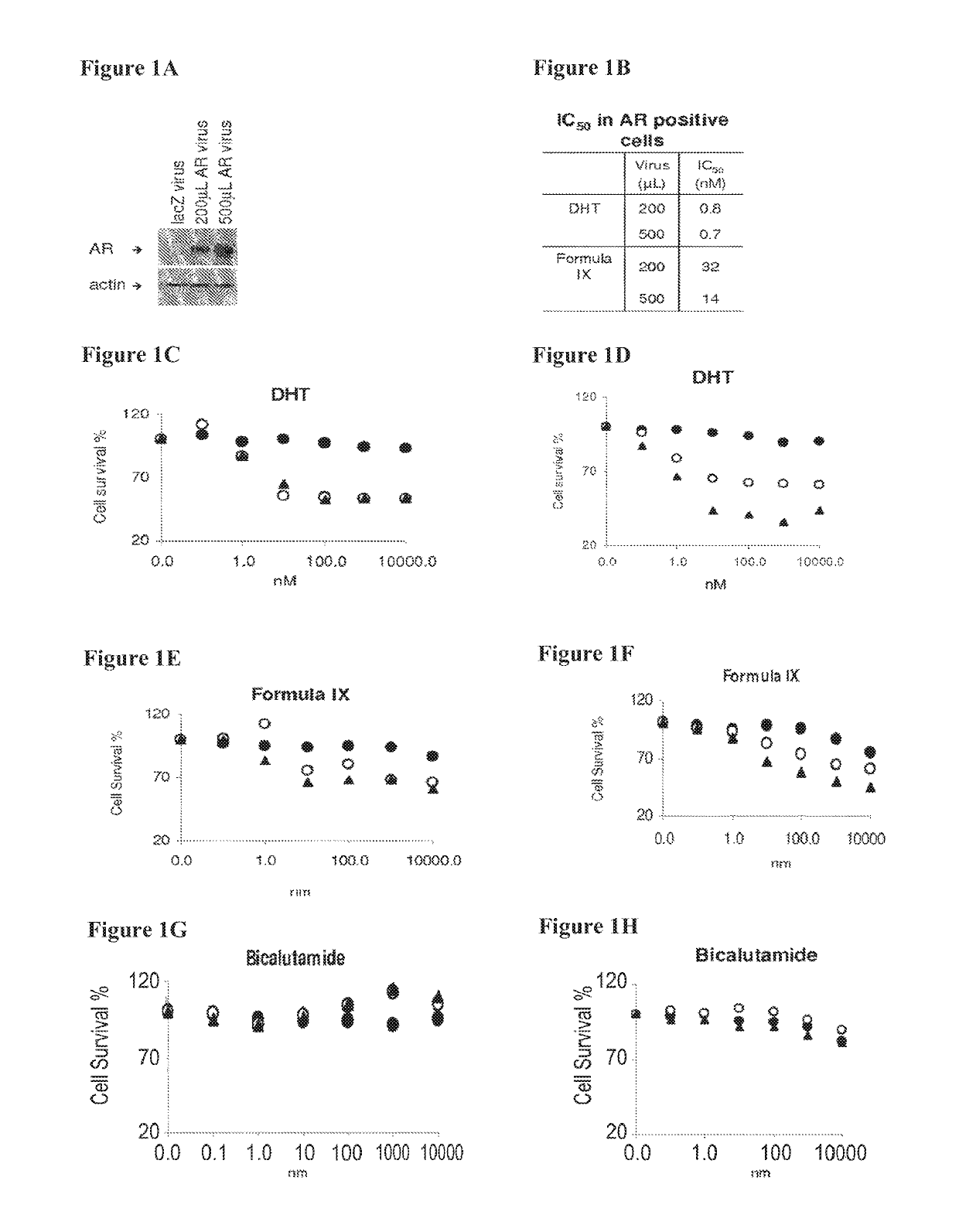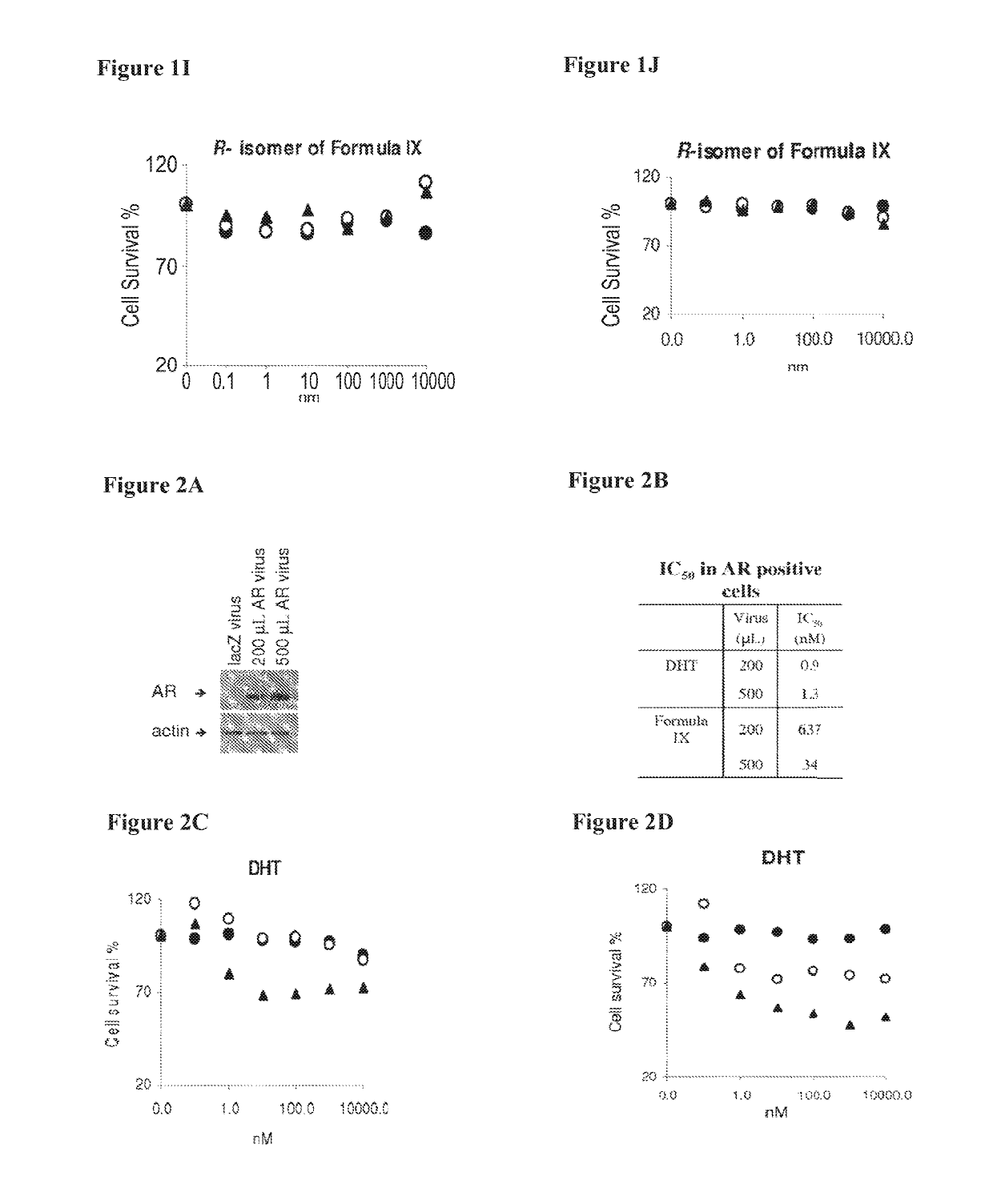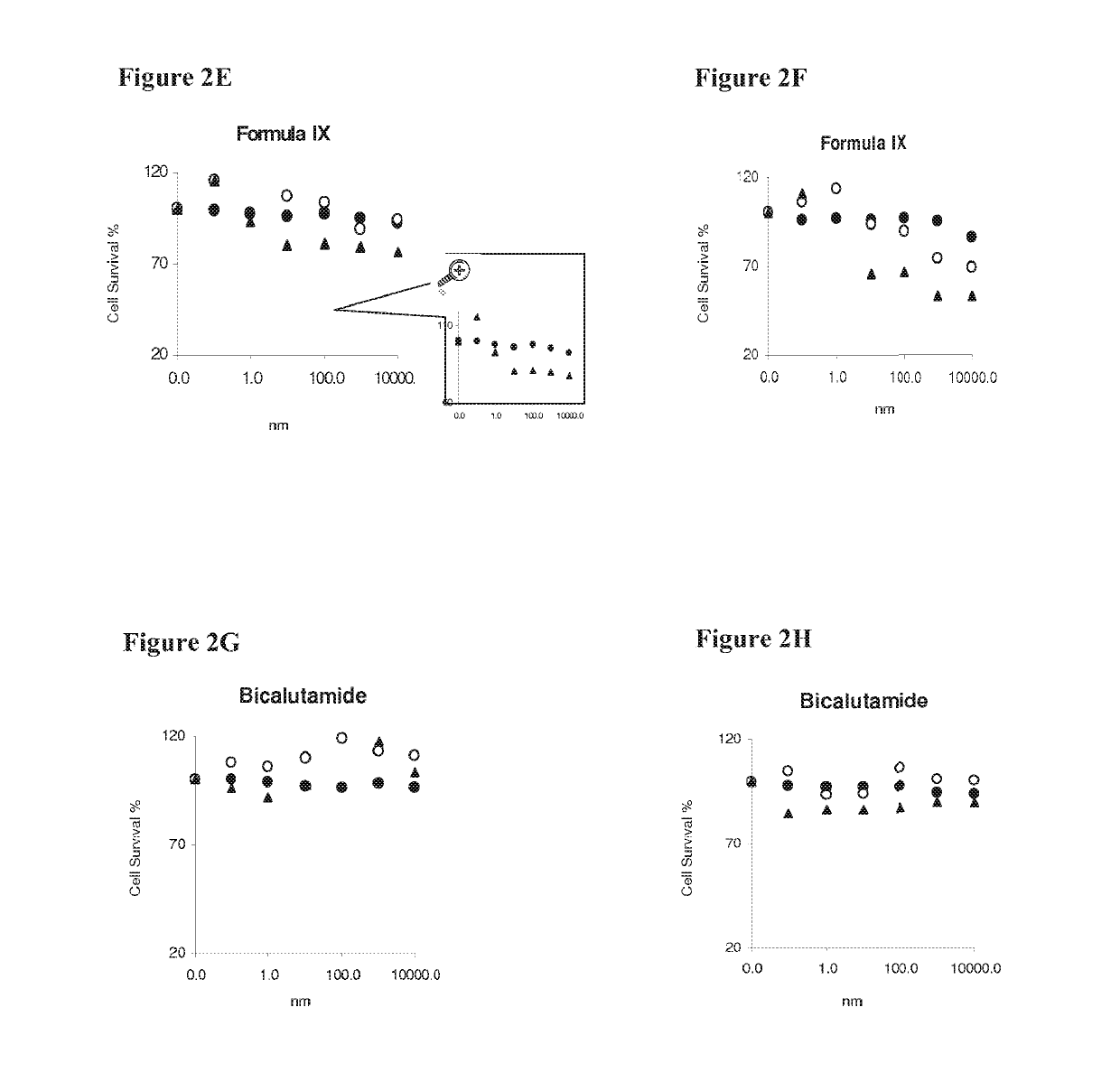Method of treating HER2-positive breast cancers with selective androgen receptor modulators (SARMS)
a technology of androgen receptor and breast cancer, applied in the direction of suppositories, capsules, aerosol delivery, etc., can solve the problems of breast cancer patients often having or developing refractory forms, inability to determine, and not finding a suitable treatment or prevention method
- Summary
- Abstract
- Description
- Claims
- Application Information
AI Technical Summary
Benefits of technology
Problems solved by technology
Method used
Image
Examples
example 1
Effect of Formula IX on Growth in Different Breast Cancers Cell Lines Expressing Androgen Receptor
Materials and Methods
[0481]MDA-MB-231 and HCC-38 triple negative breast cancer cells were used to analyze growth effects of various compounds.
[0482]MDA-MB-231 and HCC-38 triple negative breast cancer cells were infected with 200 μL or 500 μL adenovirus containing LacZ (negative control) or AR, and were treated with various AR ligands (agonists: DHT and Formula IX, and antagonist: bicalutamide) or a non-AR binder that is structurally similar to Formula IX, R-enantiomer of Formula IX. Cells were treated in charcoal stripped FBS (FIGS. 1C, 1E, 1G and 1I; 2C, 2E and 2G or full serum (FIGS. 1D, 1F, 1H and 1J; 2D, 2F and 2H for 3 days, fixed and stained with sulforhodamine blue (SRB) to measure cell viability. IC50 values were calculated.
Results
[0483]Expression of AR in cells infected with AR or LacZ was evaluated using Western blotting (FIG. 1A and FIG. 2A).
[0484]Only the AR agonists, DHT an...
example 2
Reversal of Effect of Formula IX on Growth
Materials and Methods
[0485]To determine if the growth inhibition observed with DHT and Formula IX in AR-positive cells is AR dependent, MDA-MB-231 cells were infected with adenovirus containing LacZ (negative control) or AR and were treated with AR agonists, DHT or Formula IX, in the presence or absence of the AR antagonist, bicalutamide. Cells were treated in charcoal stripped FBS (FIGS. 3A and 3C or full serum (FIGS. 3B and 3D for 3 days, fixed and stained with sulforhodamine blue (SRB) to measure cell viability. IC50 values were calculated.
Results
[0486]Both DHT and Formula IX required AR to inhibit MDA-MB-231 cell growth, as demonstrated by the weakened growth inhibitory effects in the presence of bicalutamide (FIGS. 3A-3D). IC50 values for DHT and Formula IX in AR-positive cells pretreated with or without bicalutamide are presented in FIG. 3E.
example 3
Effect of AR Ligands on Breast Cancer Cell Growth
Materials and Methods
[0487]To determine if all AR ligands inhibit the growth of triple negative breast cancer cells, MDA-MB-231 cells were infected with adenovirus containing LacZ or AR and were treated with various AR ligands (agonists: DHT, Formula VIII, Formula IX, Formula X, Formula XIII, Formula XIV; antagonist: bicalutamide) and a non-AR-binder: R-enantiomer of Formula IX. Cells were treated in charcoal stripped FBS (FIGS. 4A, 4C, 4E, 4G, 4I, 4K, 4M and 4O or full serum (FIGS. 4B, 4D, 4F, 4H, 4J, 4L, 4N and 4P for 3 days, fixed and stained with sulforhodamine blue (SRB) to measure cell viability. Anti-proliferative IC50 values were calculated in breast cancer cells and compared to transactivation values, i.e., EC50 (agonists) and IC50 (antagonists) values, generated in HEK-293 cells. The growth regulatory properties in breast cancer cells of these molecules in breast cancer cells are comparable to the transactivation values obta...
PUM
| Property | Measurement | Unit |
|---|---|---|
| weights | aaaaa | aaaaa |
| length | aaaaa | aaaaa |
| pH | aaaaa | aaaaa |
Abstract
Description
Claims
Application Information
 Login to View More
Login to View More - R&D
- Intellectual Property
- Life Sciences
- Materials
- Tech Scout
- Unparalleled Data Quality
- Higher Quality Content
- 60% Fewer Hallucinations
Browse by: Latest US Patents, China's latest patents, Technical Efficacy Thesaurus, Application Domain, Technology Topic, Popular Technical Reports.
© 2025 PatSnap. All rights reserved.Legal|Privacy policy|Modern Slavery Act Transparency Statement|Sitemap|About US| Contact US: help@patsnap.com



